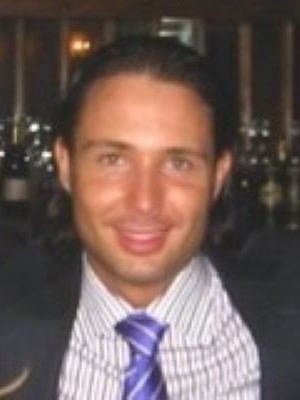
Tibor Hric
RADIOLOGIC TECHNOLOGY
Graduated in 2009
Lead Technologist, Computed Technology
Henry Ford Hospital
Q: Why did you choose Wayne State?
A: Because of its affiliation with Henry Ford Health, with its global reputation for providing renowned care to its patients.
Q: What inspired you to pursue this career?
A: The combination of constantly evolving imaging technologies and how they can be used to help diagnose illness and monitor treatments for patients has always been an aspect of health care that has fascinated me. Its continuous evolution always keeps the profession interesting and engaging.
Q: Who was your most memorable instructor?
A: Program Director Kathleen Kath consistently taught the program curriculum in ways that were always engaging on a practical level to the profession, and easily understood and retained regardless of the level of detail or abstractness. Though classes were demanding, Mrs. Kath made them very enjoyable!
Q: What was your most challenging class?
A: Radiation Biology. It required a comprehensive knowledge of human biology down to the cellular level, then building on that knowledge to learn and understand the effects of radiation on the human body and how they translate into providing optimal diagnostic studies.
Q: Tell us a bit about your years on campus.
A: My time spent at Wayne State University was challenging, engaging and highly motivating. Being a part of a program whose didactic and clinical components so thoroughly prepared me for its profession was invaluable. I can’t imagine another institution being able to match Wayne State.
Q: In your opinion, what is one of the biggest changes that has occurred in your profession since graduating?
A: The sheer growth in number of pathology-specific protocols we use. Where once there where a dozen or so protocols, there are now many dozens of types of studies that we routinely perform. Our scanning protocols are constantly evolving.
Q: Share a career highlight with us.
A: A career highlight was becoming a Lead CT Technologist in a Level 1 trauma hospital three years after graduating. Being able to provide a high standard of care to our patients while interacting with students currently in Wayne State’s Radiologic Technology program has been extremely rewarding.
Radiologic technologists are health care professionals who administer prescribed radiation to help diagnose medical conditions. They perform procedures such as X-rays, CT scans and MRI exams. The Eugene Applebaum College of Pharmacy and Health Sciences Radiologic Technology program was Michigan’s first accredited bachelor’s degree program in the field. The application deadline is Dec. 15.
An anchor in urban health care
The Eugene Applebaum College of Pharmacy and Health Sciences is built on more than 100 years of tradition and innovation in the heart of Detroit. We have grown deep roots in our city, harnessing its powerhouse hospital systems and community service organizations as vibrant, real-world training grounds for students, with an ongoing focus on social justice in health care. And our research at all levels – from undergraduates to veteran faculty members – translates into creative solutions for healthier communities.
Wayne State University is a premier urban research institution offering approximately 350 academic programs through 13 schools and colleges to nearly 24,000 students.